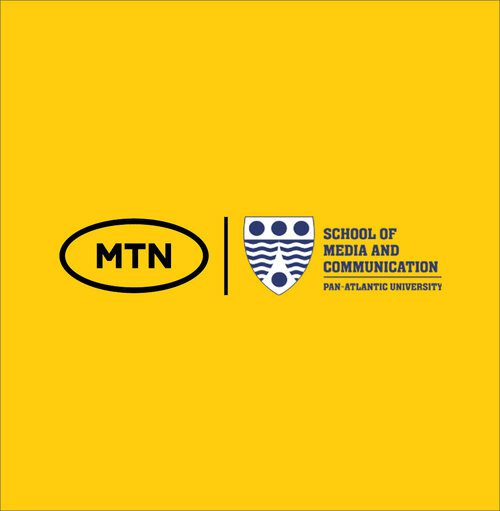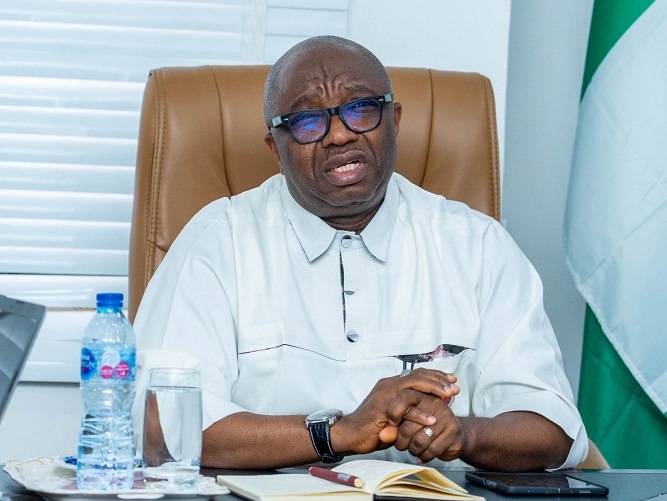Telecom
5G to Contribute Over $7.5tn to Global GDP by 2030 – Report

By 2030, 5G-related initiatives will contribute over $7.5 trillion to the global gross domestic product (GDP).
This is according to Dimitris Mavrakis, research director of ABI Research, highlighting the impact of 5G technologies on the global economy, businesses and consumers across the globe.

Mavrakis was speaking at the Huawei 5G+, Better World Summit, where various operators and industry partners shared their view on how 5G applications can drive significant business and industry efficiency.
He noted that low latency, high-speed 5G connectivity has opened infinite opportunities for businesses, resulting in productivity gains and operational efficiency, boosting economic growth by over $7.5 trillion in the next decade – compared to the $5.1 trillion 4G contributed in 2019.
While 5G will drive future businesses across all sectors worldwide, Mavrakis said it is likely to be most beneficial to the commercial sector.
“We expect that 5G will transform businesses in the same way 4G transformed consumers. However, it could take several years for the manufacturing world to adopt the technology.”
With some governments aiming to establish themselves as global leaders in trialling 5G projects, Mavrakis highlighted government’s role in creating opportunities through 5G, such as in the provisioning of free 5G spectrum and the reduction in taxation of carriers.
Governments, he added, could provide opportunities for 5G to flourish within their countries by prioritising efficient usage of public and private digital infrastructure and establishing a national approach to building skills in 5G.
According to a report by Orange Business Services, 5G is set to have a profound effect on countries’ economic performance and GDP. In 2016, mobile technologies and services generated 4.4% of GDP globally, equating to about $3.3 trillion in economic value. In 2020, this has been estimated to grow to over $4.2 trillion, or 4.9% of the global GDP.
Advisory firm PwC forecasts that fast, intelligent Internet connectivity enabled by 5G technology is expected to create approximately $3.6 trillion in economic output and 22.3 million jobs by 2035 in the global 5G value chain alone. This will translate into global economic value across industries of $13.2 trillion, notes PwC. The manufacturing, information and communications, wholesale and retail, public services and construction sectors will be those expected to have the highest reliance on 5G technologies.
Telecom
How MIP Is Making a Difference in The Media Landscape

MTN Media Innovation Program (MIP), a six-month fully-funded certificate fellowship designed for media professionals, is redefining journalism and content creation in Nigeria.

Now in its fourth year, MIP, launched by MTN Nigeria in partnership with the School of Media and Communication (SMC), Pan-Atlantic University, is empowering journalists, broadcasters, and content creators with the tools to adapt, innovate, and thrive in today’s challenging media landscape.
Despite promising forecast that the market value of the Nigerian entertainment and media industry will grow from US$9.0bn in 2023 to US$13.6bn in 2028, the media sector has since grappled with issues such as limited access to training, financial instability, and the rapid decline of traditional revenue models. With digital platforms disrupting how news is consumed and monetised, journalists and media owners must rethink their approach.
MIP provides a structured learning environment where media professionals gain first-hand exposure to new industry trends, digital transformation, and the intersection of media and ICT. From data journalism to audience engagement strategies, participants leave the program with actionable skills that are shaping the future of storytelling in Nigeria.
A standout feature of MIP is its international study visit to South Africa, where fellows engage with leading media institutions, visit MTN Group’s headquarters, and participate in hands-on training sessions at the University of Johannesburg. This global exposure provides invaluable insights into how media practitioners in other markets are leveraging technology and innovation to stay ahead.
For many participants, this has been a career-defining experience. Juliet Tontoye, Vice-President, MIP Cohort 3, describes the program as ‘a turning point.’ “When we share our experiences with our colleagues at our respective media houses, we realize that the program’s benefits and impact are easier to experience than explain. In the past three months, MIP has been such an eye-opening journey. It’s a fellowship every media professional needs to experience. MTN has been such a wonderful host and we know this costs millions of Naira. However, we believe it will have a profound impact on our colleagues.”
Beyond individual impact, MIP is helping reshape the media industry by fostering collaboration and leadership. By bridging the gap between traditional journalism and digital innovation, the program ensures that fellows graduate not just as better storytellers, but as industry disruptors with a mission to create lasting change. The program’s 60 alumni, now spread across Nigeria’s top media organisations, are applying their knowledge to revolutionise newsrooms, create digital-first content strategies, and introduce sustainable business models.
According to Tobechukwu Okigbo, Chief Corporate Services & Sustainability Officer, MTN Nigeria: “When we launched MIP in 2022, our goal was to enhance media professionals’ reporting capabilities and deepen their understanding of the technology sector, empowering them to become true media innovators. Seeing the impact of the programme over the past three years has been both inspiring and humbling. We are proud to continue this initiative and invite all eligible media professionals and content creators to seize this opportunity by applying for the fourth cohort.”
Similarly, the Dean of the School of Media and Communication, Pan-Atlantic University, stated: “SMC will leverage its extensive experience in training media professionals to equip this next cohort. And we will do this with our usual emphasis on creativity and ethics.”
With over 60 fellows trained since its inception in 2022, MIP is building a network of media advocates who are championing ethical reporting, storytelling innovation, and the smart use of technology in journalism.
MTN Nigeria has invested over NGN 300 Million in building Nigeria’s media industry in the past three years through its partnership with PAU.
As applications open for the 2025 cohort, the program continues to attract top-tier talent eager to take their careers to the next level and contribute to the transformation of Nigerian media.
For journalists, broadcasters, and content creators looking to future-proof their careers, the MTN Media Innovation Program is more than just a fellowship—it is a movement that is reshaping the industry, one fellow at a time.
Interested journalists, bloggers, and content creators can apply for the MIP 2025 at https://bit.ly/MTN_MIP2025.
Telecom
Nigeria Heads Anglophone Data Protection Committee

Dr. Vincent Olatunji, Chief Executive Officer of the Nigeria Data Protection Commission, has been appointed as the Chair of the Anglophone Countries Committee of the Network of Africa Data Protection Authorities (NADPA).

The appointment, confirmed on April 2, underscores Nigeria’s leadership in Africa’s data privacy efforts. Speaking after his confirmation, Olatunji urged members to prioritize collective efforts in protecting the privacy rights of over 1.4 billion Africans.
Meanwhile, Nigeria will host the 2025 NADPA Annual General Meeting and Conference in May. Themed “Balancing Innovation in Africa: Data Protection and Privacy in Emerging Technologies,” the event will showcase Nigeria’s strides in digital economy development under President Bola Ahmed Tinubu’s administration.
Telecom
NCC Asks Consumers to Monitor Data Usage to Authenticate Consumption

Nigerian Communications Commission (NCC) has charged the over 174 million telecoms subscribers in the country to constantly monitor their data usage to authenticate their consumption level.

This follows concerns being raised by telecoms consumers about the rapidity of data depletion on their devices.
The Commission particularly enjoined the consumers to always contact their service providers to make requests for cases of discrepancies noted in their data usage.
While the consumers are expected to contact their service providers to request for their usage history/statement where inconsistency exists in their data usage as first step, the Commission said they may also escalate such issues to the Commission through its toll-free Number 622 and social media platforms, especially if their requests are not satisfactorily handled.
The Commission, which also made some clarifications regarding the concerns being raised by the consumers around data usage, said the need to inform the consumers on their concerns is part of its commitment to protect and appropriately inform and educate the telecom consumer on industry issues.
Making further clarifications around data speed and usage, the Commission said data speed is the speed at which data is transferred between two devices, measured in megabits per second (Mbps or mbps), stressing that given the spread of Internet services and the immense investment in the sector, data rates have continued to increase and users may be unaware of how to measure data speed.
The telecoms regulator explained further that websites such as www.fast.com also provide an easy way for consumers to measure Internet speed on any device at any location.
“The higher the data speed, the quicker pages load-downloads and uploads-occur and expectedly, the quicker data bundles are exhausted. So, as telecom consumers are able to do more on devices in less time, some consumers’ devices & network service providers make it possible to limit data speed to help users manage data usage better.
“In any case, most devices now include functions to measure data used by devices and it is imperative that users monitor same to authenticate data usage, such as applications left running on devices. Therefore, where discrepancies occur users may contact their service provider to request for their usage history/statement. If request is not dealt with satisfactorily then, users can contact NCC by calling 622 or engage the Commission via its social media platforms”.
It added that the data usage experience is a function of location, network equipment and users connected in a particular location.

 Broadcasting3 days ago
Broadcasting3 days agoDStv Revenue Plunges as MultiChoice Loses Nearly 4m Subscribers

 News2 days ago
News2 days agoNIPSS Projects Petrol Prices to Hit ₦750/Litre Before Year’s End!

 Telecom3 days ago
Telecom3 days agoNCC Asks Consumers to Monitor Data Usage to Authenticate Consumption

 Telecom3 days ago
Telecom3 days agoPhone Theft: AMCODET Urges Mandatory Registration @ Point of Purchase

 News3 days ago
News3 days agoTikTok Sale Deal Expected Before April 5 Deadline – Trump

 News3 days ago
News3 days agoQuestions Over House of Reps Threat to Arrest NIMC DG

 E-Financial3 days ago
E-Financial3 days agoFidelity Bank Records a 210.0% Growth in PBT to N385.2bn

 E-Financial2 days ago
E-Financial2 days agoFidelity Bank Reports N385.2Bn Pre-Tax Profit for 2024

























